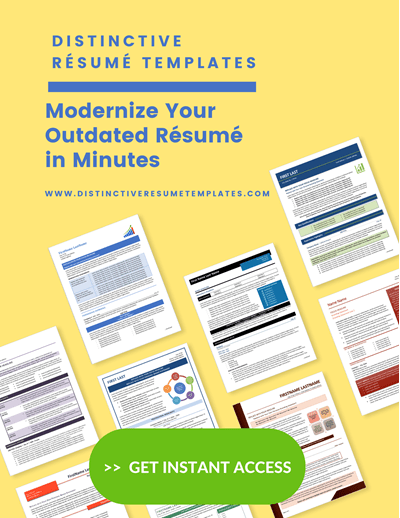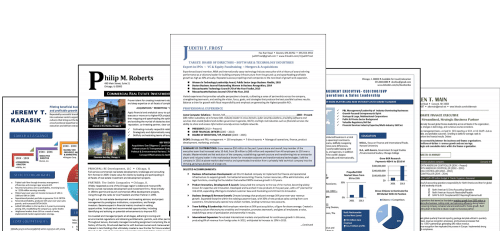LEARN HOW WE WRITE POWERFUL RESUMES FOR BUSINESS OWNERS RETURNING TO EMPLOYMENT
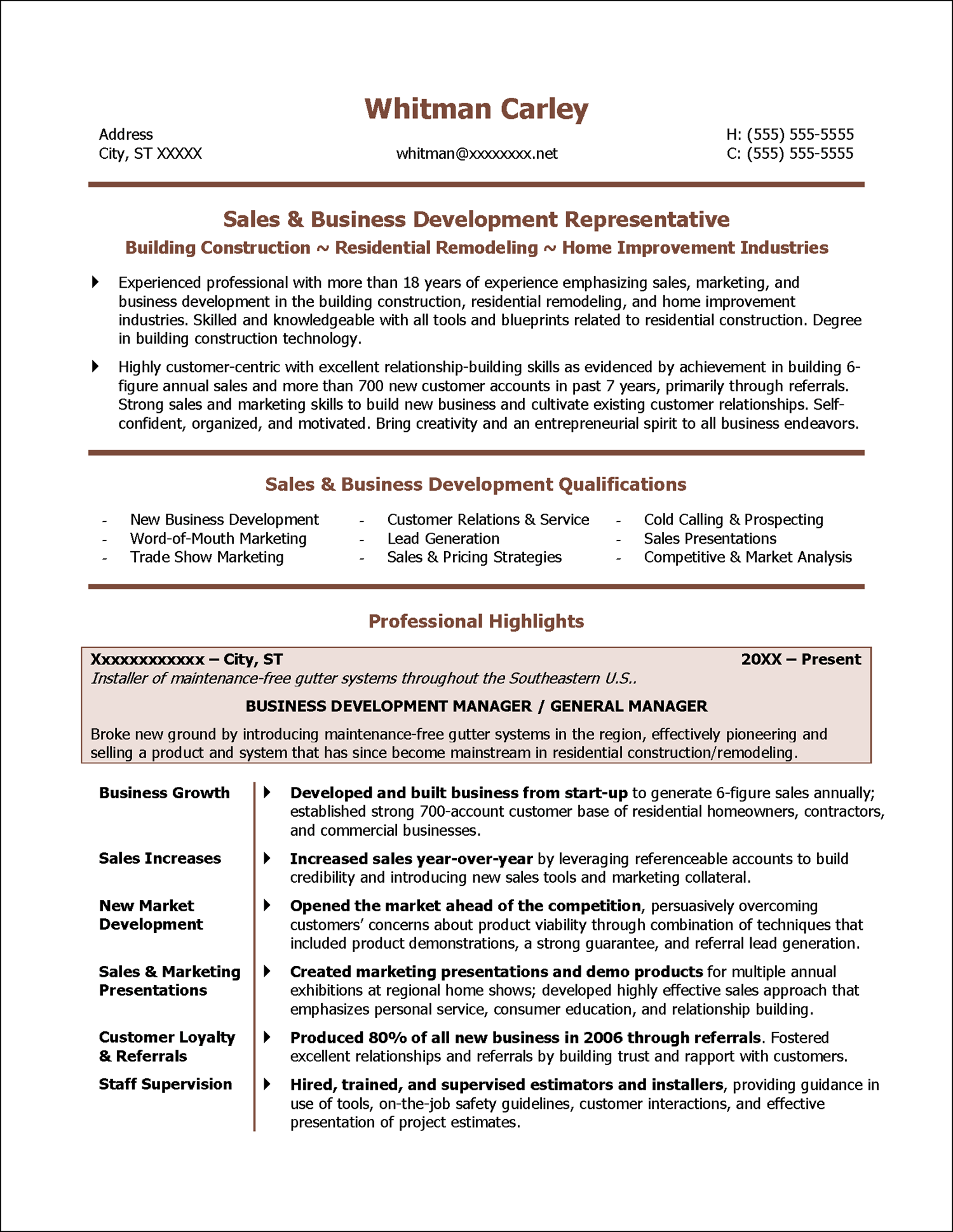
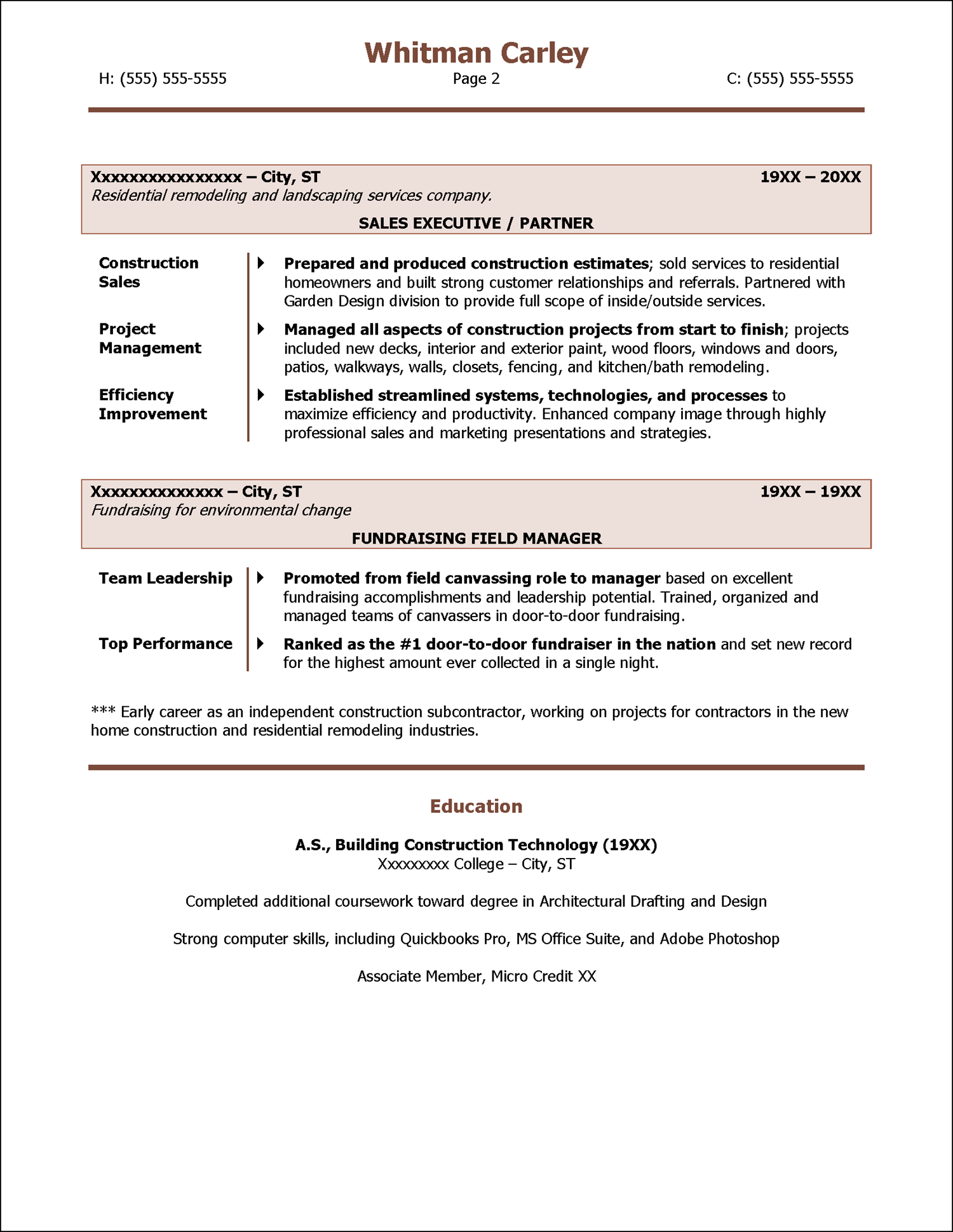
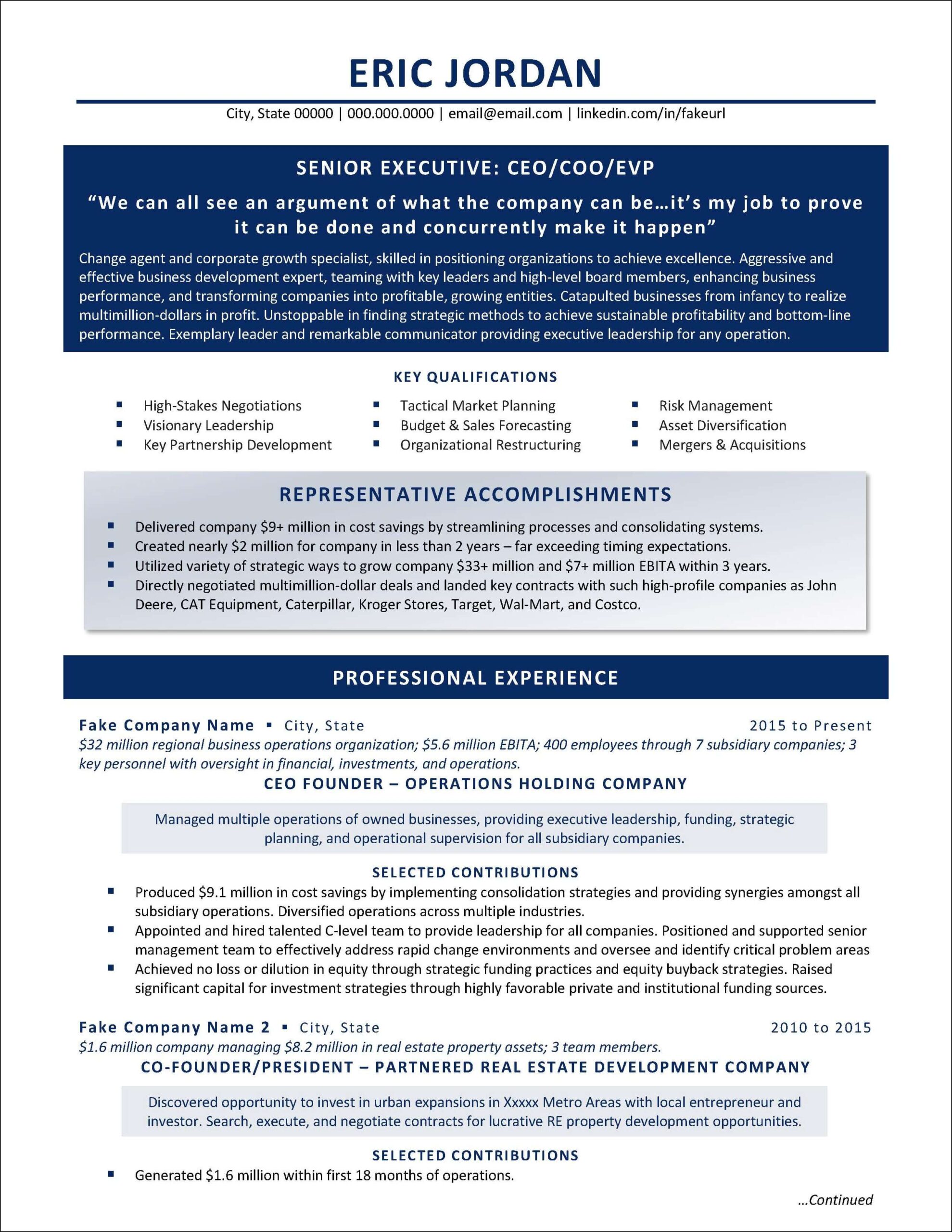
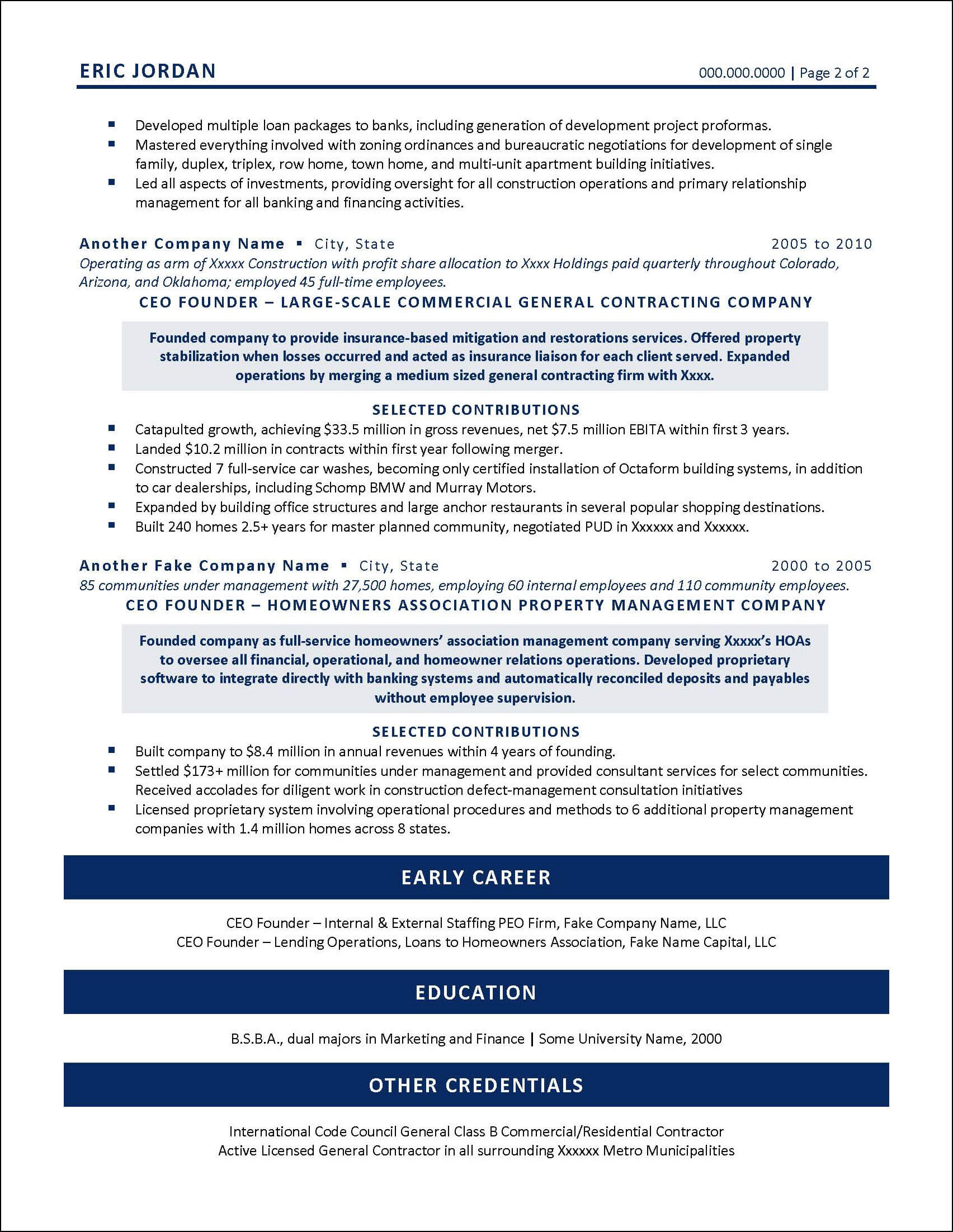
If you found this example former business owner resume inspiring, you may also have an interest in reviewing other example resumes from our portfolio. Some popular examples include these blue-collar resumes, government affairs resume, college student resume examples, technical program manager resume, administrative assistant resumes, biotech resume, telecommunications industry resume, advertising agency resume, human resources resume, technical writer resume, and insurance industry resume.
If you are feeling overwhelmed about writing your resume, stop! We are here to help you. Just schedule a free resume writing consultation to learn more about how our resume writing services can be of help to you.
Project Brief: Entrepreneur & Former Business Owner Resume
Resume Strategies for Business Owners Returning to Employment
The first example business owner resume shown here was written for an entrepreneurial former business owner client. This resume illustrates a technique entrepreneurs can use to return to traditional employment. This person had worked for himself for over a decade but was selling his business and wanted to land a new job in sales.
When you write your business owner resume it is crucial to know your audience and then frame your experience in ways that will show how you are the best person for the job.
Entrepreneurs and business owners often have a tough time because the potential employer will be concerned that they are too independent to return to employment, often overqualified, and they also may worry that the entrepreneur is just passing the time until the next good business opportunity.
In this example resume for a former business owner, we chose to emphasize all the aspects of the person’s experience relevant to sales and business development-related positions and de-emphasize all the aspects that have to do with high-level business management.
Resume Strategies for Founder CEOs Seeking C-Suite Employment
The second example business owner resume is a very different situation. This CEO founder had held entrepreneurial roles, building multimillion-dollar businesses from the beginning of his career. He had never held a traditional job as an employee.
Now, he wanted to explore senior leadership positions as a CEO, COO, or SVP for a growing, established company. This resume was written to call attention to his high-level executive leadership and position him as a leader capable of growing both start-up companies as well as managing large corporate organizations. The goal was to show him as a leader capable of stepping in and profitably managing any operation.
Note that this example resume is designed using the flexible executive resume template available for purchase through Distinctive Resume Templates.
More Tips for Writing a Business Owner Resume
1. Start with a Strong Summary:
- Begin your resume with a concise summary highlighting your entrepreneurial experience and how it can be an asset in a traditional role.
- Include key achievements, quantified when possible, as a business owner that are relevant to the job you’re applying for.
2. Emphasize Transferable Skills:
- Leadership: As a business owner, you’ve led teams, made decisions, and steered the direction of your company.
- Problem-solving: Owning a business as a self-employed business owner comes with its set of challenges. Highlight instances where you’ve overcome obstacles.
- Project Management: Discuss projects you’ve managed from inception to completion.
- Financial Acumen: Detail your experience with budgeting, financial forecasting, and profit and loss management.
3. Detail Your Business Experience:
- Instead of just listing your title as “Owner” or “CEO,” delve into the specifics of what you did.
- Highlight any processes you improved, teams you built, or significant growth milestones achieved.
4. Tailor Your Business Owner Resume for the Role:
- While your entrepreneurial experience is valuable, ensure your resume speaks to the specific job you’re applying for.
- Customize your resume and remove any jargon or industry-specific terms that might not be relevant.
5. Highlight Relevant Soft Skills:
- Adaptability: Owning a business requires wearing many hats. Emphasize your ability to adapt to different roles and situations.
- Negotiation: Discuss deals or partnerships you’ve brokered.
- Networking: Mention relationships you’ve built in the industry and how they could be beneficial to a potential employer.
6. Include Relevant Certifications and Training:
- If you’ve taken courses or earned certifications while running your business, list them. They can show continuous learning and expertise in specific areas.
7. Address Potential Concerns:
- Some employers might be wary, thinking you’ll leave once your next business idea strikes. Address this in your cover letter or interview, emphasizing your commitment to the role.
8. Showcase Achievements with Metrics:
- Instead of just stating you increased sales, mention by what percentage or amount.
- Use quantifiable data in your resume to show growth, efficiency improvements, or cost savings you’ve achieved.
9. Keep it Professional:
- Ensure your resume is free of errors. Consider getting it reviewed by a professional or trusted colleague.
- Use a clean, easy-to-read resume template that is ATS-friendly.
10. Network:
- Leverage your business contacts to help you find opportunities or get referrals. They can vouch for your skills and work ethic.
In conclusion, as a business owner transitioning to traditional employment, your diverse skill set is a strength. Tailor your resume to highlight the most relevant experiences and skills, and approach the job search with confidence. Remember, your entrepreneurial journey provides a unique perspective that can be invaluable in many traditional roles.

